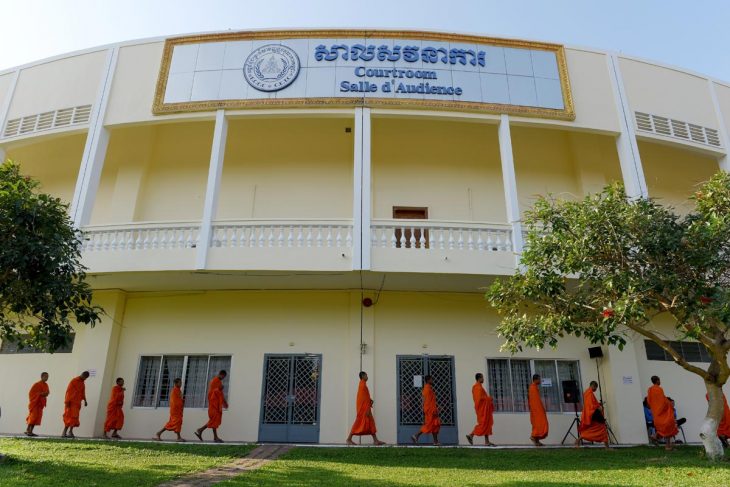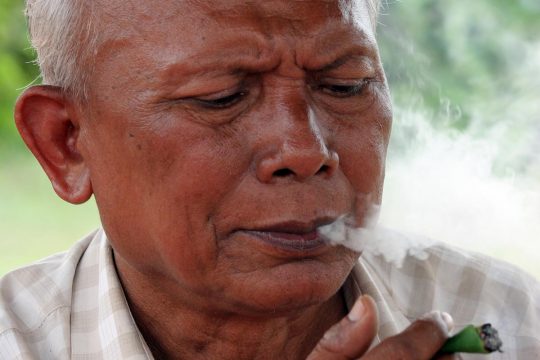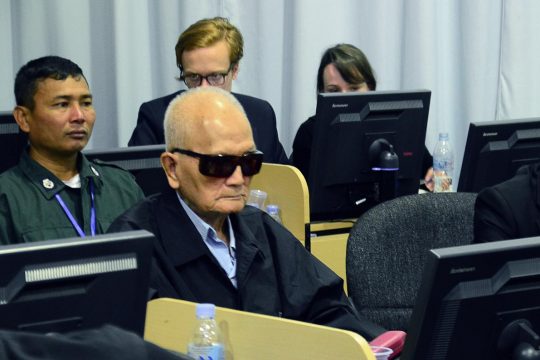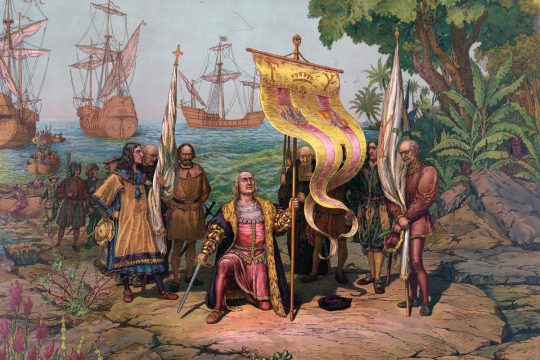Four decades ago, the Khmer Rouge killed an estimated 1.7 million people in Cambodia. Late last month two of its highest-ranking leaders, Khieu Samphan and Nuon Chea, were found guilty of war crimes, crimes against humanity, and genocide. The following day, Cambodia’s Deputy Prime Minister, Sar Kheng, declared that the tribunal which oversaw these historic convictions, the Extraordinary Chambers in the Courts of Cambodia (ECCC), had completed its work and should abandon its remaining cases. As a victim and now plaintiff before the ECCC who fled Cambodia at age 10, and lawyers who have been presenting cases at the ECCC for eight years, we believe this would be a grave mistake.
There are currently three final cases still pending before the ECCC, commonly known as Cases 003, 004 and 004/2. These cases target notable former military commanders and zone level leaders charged with implementing Khmer Rouge policies in key provinces where serious crimes occurred. Each case is integral to understanding how the execution of Khmer Rouge policies at the regional and local levels led to the mass atrocities and cultural devastation now synonymous with the regime. These cases also represent a commitment to upholding the rule of law in the face of political pressures.
A terrible precedent
In a country ranked nearly dead last in the World Justice Project’s Rule of Law Index, the ECCC stands as an example of a functioning court able to hold the powerful to account. The ECCC is staffed by both Cambodian and international lawyers and judges, making it a truly “hybrid court.” Nonetheless, Cambodia’s Prime Minister Hun Sen, who was himself a mid-level Khmer Rouge commander before fleeing to Vietnam, has repeatedly called for the closing of the Court. The prime minister argues that allowing the ECCC to finish its work would cause civil unrest. There is no evidence to support that claim – the Khmer Rouge leadership collapsed over two decades ago and its remnants no longer pose a serious threat of violence. Instead, what history has taught us time and again is that the real threat to lasting peace is the failure to achieve justice.
We believe the Court has been able to carry out its work in Cases 001 and 002 with a relative degree of independence. The result has been a set of important judgments viewed as fair and legally sound both by Cambodians and the international community. These verdicts create a vital historic record for one of the largest mass murders of the 20th century. Forcing the closure of the ECCC before it has finished its work would undermine its judicial independence and tarnish its legacy and impact. By shutting down the ECCC without permitting its remaining cases to move forward, the government of Prime Minister Hun, who once stated that Khieu Samphan and Nuon Chea should be greeted with “bouquets of flowers, not with prisons and handcuffs,” will have ended one of the only courts in Cambodia that has functioned with some degree of independence. This sort of political interference would set a terrible precedent both for Cambodia and the international community.
A message to victims over the world
As a plaintiff, and lawyers representing 145 US-based Khmer Rouge survivors, we urge the Cambodian and international community not to accept the closure of the ECCC as a fait accompli. Thousands of victims have waited decades for their day in court. Closing the ECCC ends any chance they have to see a measure of justice and accountability for the horrors they endured, and for continuing to uncover the truth of what occurred during the four years that the Khmer Rouge ruled Cambodia.
The legacy of the ECCC has impact beyond Cambodia. Victims and survivors of today’s mass atrocities – from the Rohingya to the Yezidi – need to know that justice and redress for the crimes they have endured are possible. The success of the ECCC carries the message that justice can prevail no matter how much time has passed, and that even the seemingly most powerful may one day be held to account.
SOPHAL EAR, NUSHIN SARAKATI AND DANIEL MCLAUGHLIN
Sophal Ear is a Civil Party in the Extraordinary Chambers in the Courts of Cambodia and an Associate Professor of Diplomacy and World Affairs at Occidental College, in Los Angeles, USA. Nushin Sarkarati and Daniel McLaughlin are Senior Staff Attorneys at the Center for Justice and Accountability (CJA) in San Francisco. The CJA is an international human rights legal organization that provides legal assistance and representation to victims and survivors of atrocity crimes.








